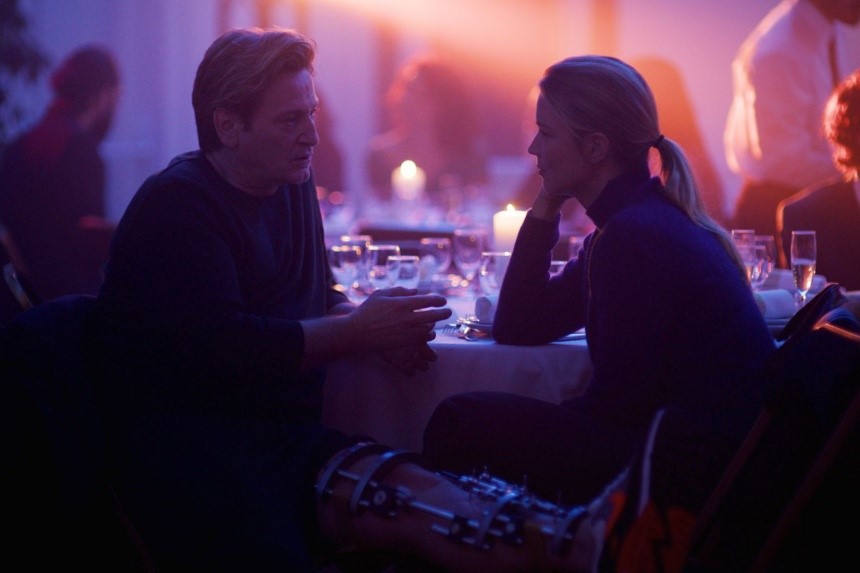Paris Memories (Revoir Paris)
⭐️ ⭐️ ⭐️ ⭐️
1 hour 45 minutes
Stars: Virginie Efira, Benoît Magimel, Grégoire Colin
Writers: Jean-Stéphane Bron, Marcia Romano, Alice Winocour
Director Alice Winocour
Reviewed at the Toronto International Film Festival
Mia is haunted by a moment she cannot remember. All she knows for sure is that three months ago, she was sitting by herself in a Paris cafe, casually observing a birthday celebration a few tables away. After that comes a jumble of splintered memories; of gunshots, of screams, of sheer, visceral terror.
Intellectually, Mia knows she is one of the few survivors of a bloody terrorist attack. She has seen the newspaper and TV accounts; she has attended survivors’ meetings and heard the heart-stopping accounts of those who recall the awful event — or who, at least, believe they have accurate recollections.
But for Mia, the night is a factual blank that has, nevertheless, seared a visceral scar on her psyche. She bears all the trauma of one who has experienced a vision of hell, yet the vision itself eludes her.
This is the plight of the woman at the heart of writer/director Alice Winocour’s compelling drama, based on a real-life 2015 Parisian terrorist attack, yet sufficiently detached from those actual events to allow for a spectrum of dramatic licenses: episodes that are reflectively somber, explosively violent, unexpectedly romantic.
Virginie Efira (Elle) is Mia, a Russian language translator who shares a comfortable, if emotionally muted, live-in relationship with Vincent, an influential physician (Grégoire Colin). Vincent tries to provide the support Mia needs in the aftermath of the slaughter, but his years as a big city doctor appear to have shorted out his empathy circuits. He soon grows frustrated with Mia’s unfocused despondency, not quite telling her to “Snap out of it” but coming pretty darned close.
Ultimately, Mia finds the therapeutic company she craves in Thomas (Benoît Magimel), the fellow whose tragically aborted birthday celebration she’d been witnessing when the shooting started. When they run into each other at a survivors’ meeting, Mia is struck by how clearly Thomas — whose legs were shattered by the terrorists’ automatic weapons — recalls every detail of the terrible night. He, in turn, is drawn to Mia’s determination to unlock the very memories he would love to erase.
Paris Memories offers a landscape of sensitive portrayals: A kitchen worker, afraid of being deported because he is undocumented, nevertheless holds Mia’s hand through the attack until help arrives. A young woman whose parents died visits the museum exhibit they attended just beforehand, hoping to, in some way, share their final happy moments. Winocour even finds empathy for a woman who bitterly and irresponsibly accuses Mia of an unspeakably selfish act.
Through it all, Winocour’s cast digs deeply to get beneath the superficial traumas their characters endure. Efira, especially, explores the disturbing nexus where life-shattering tragedy engenders the opportunity to make course corrections, never once attempting to rationalize the presence of profound sadness, only accepting the fact that tragedy and positive change often go hand-in-hand.
It has been nearly a year since I saw Paris Memories at the Toronto International Film Festival. Just a couple of weeks ago, as I sat in a Paris cafe sipping espresso and watching humanity hustle by, I was suddenly seized by the memory of Winocour’s explosive vision of human cruelty.
It was a startling moment; a testimony to the power of movies. But so was the aftermath: A reminder that film is uniquely positioned to summon visions of hope in the face of horror.
Become a Saturday Evening Post member and enjoy unlimited access. Subscribe now



